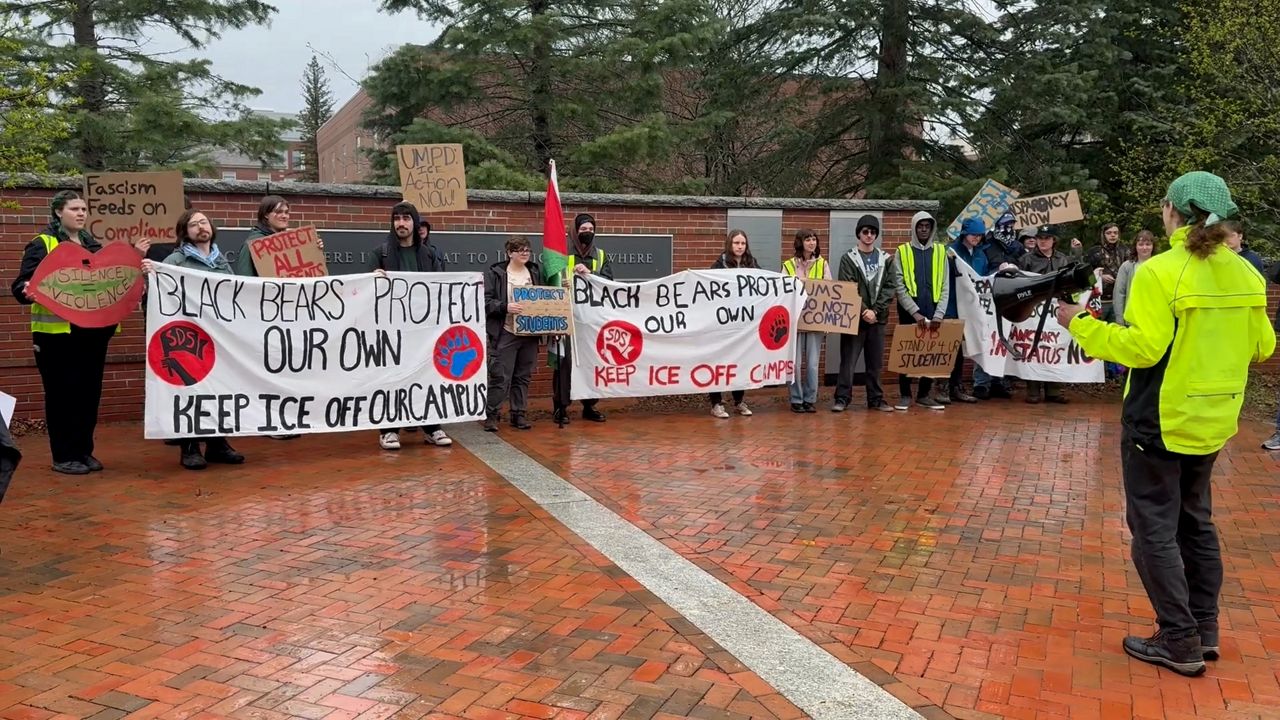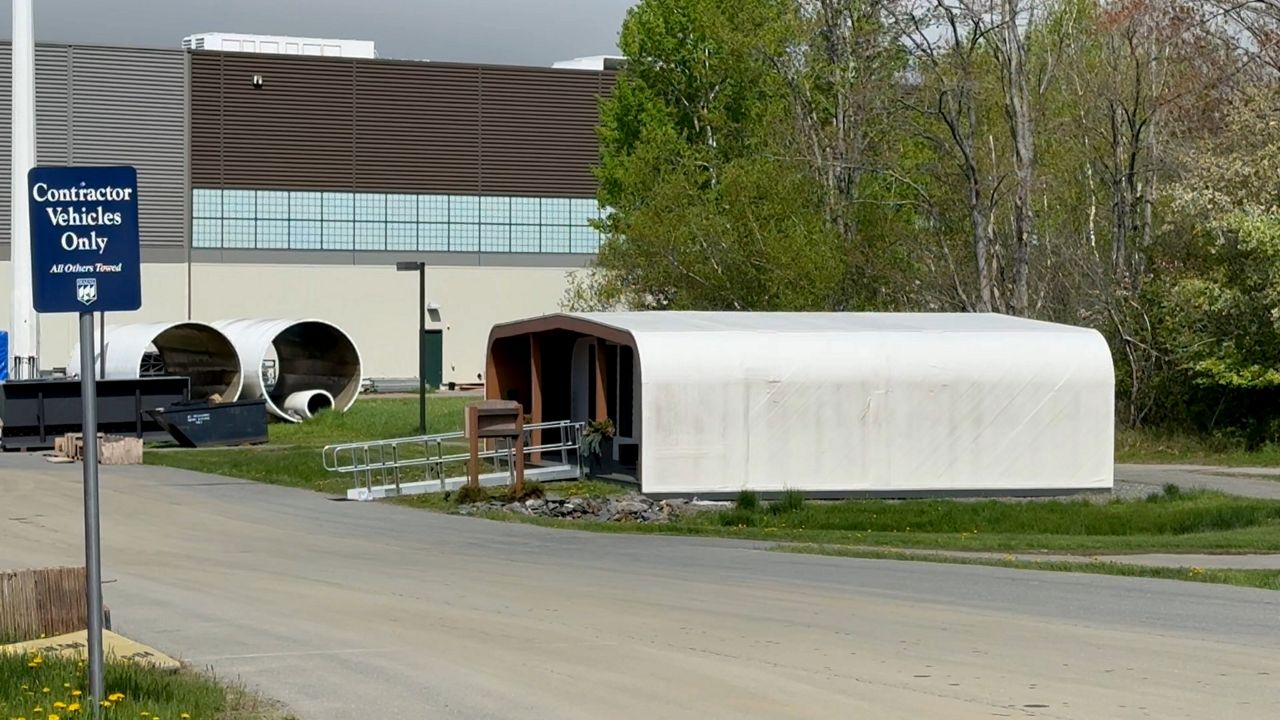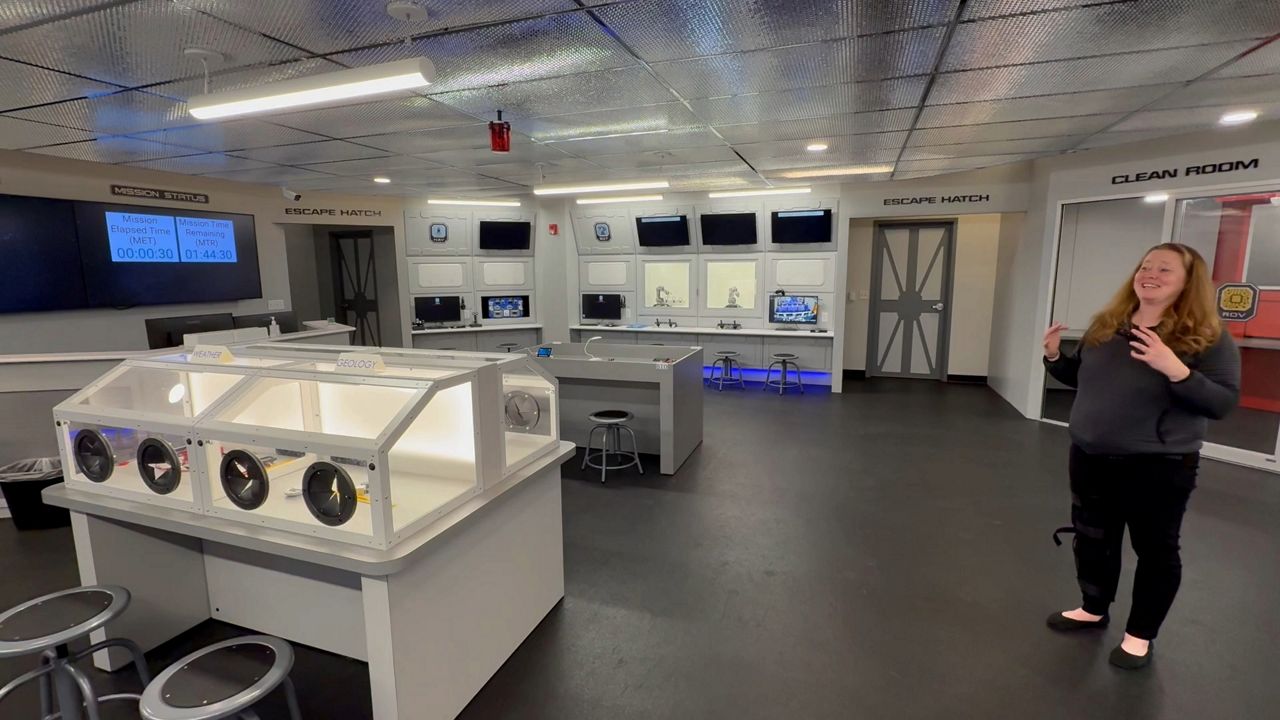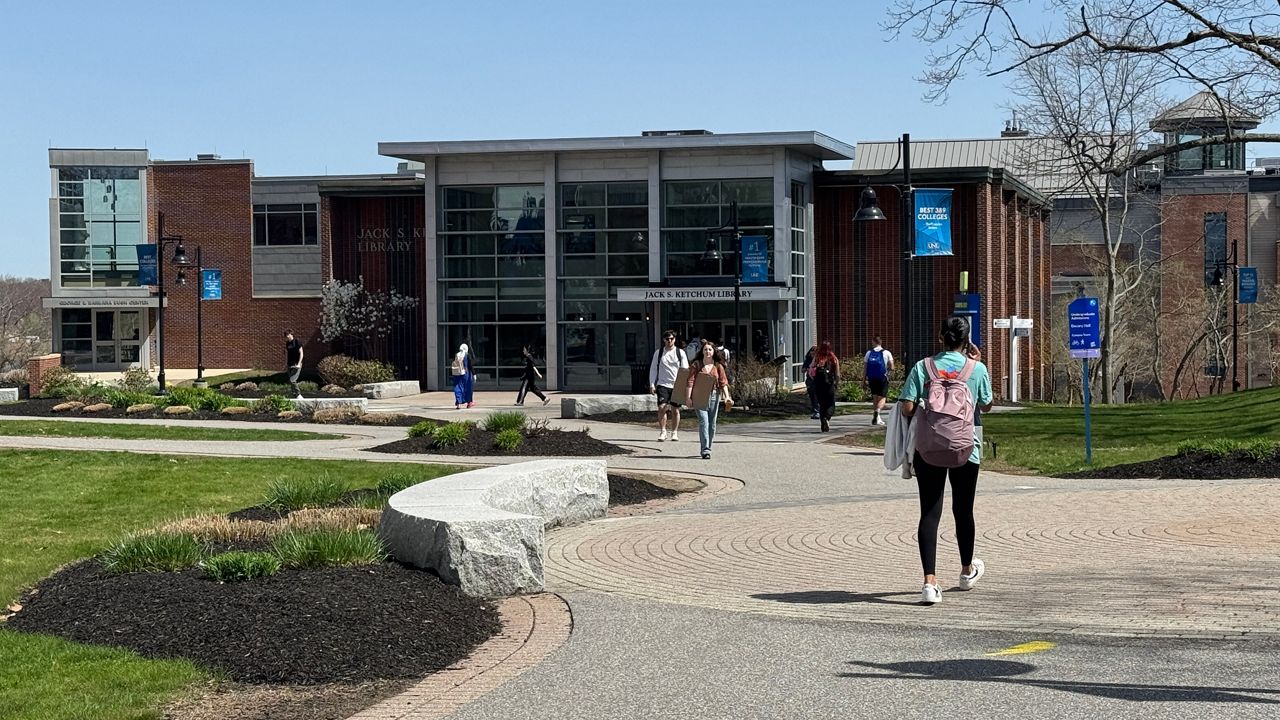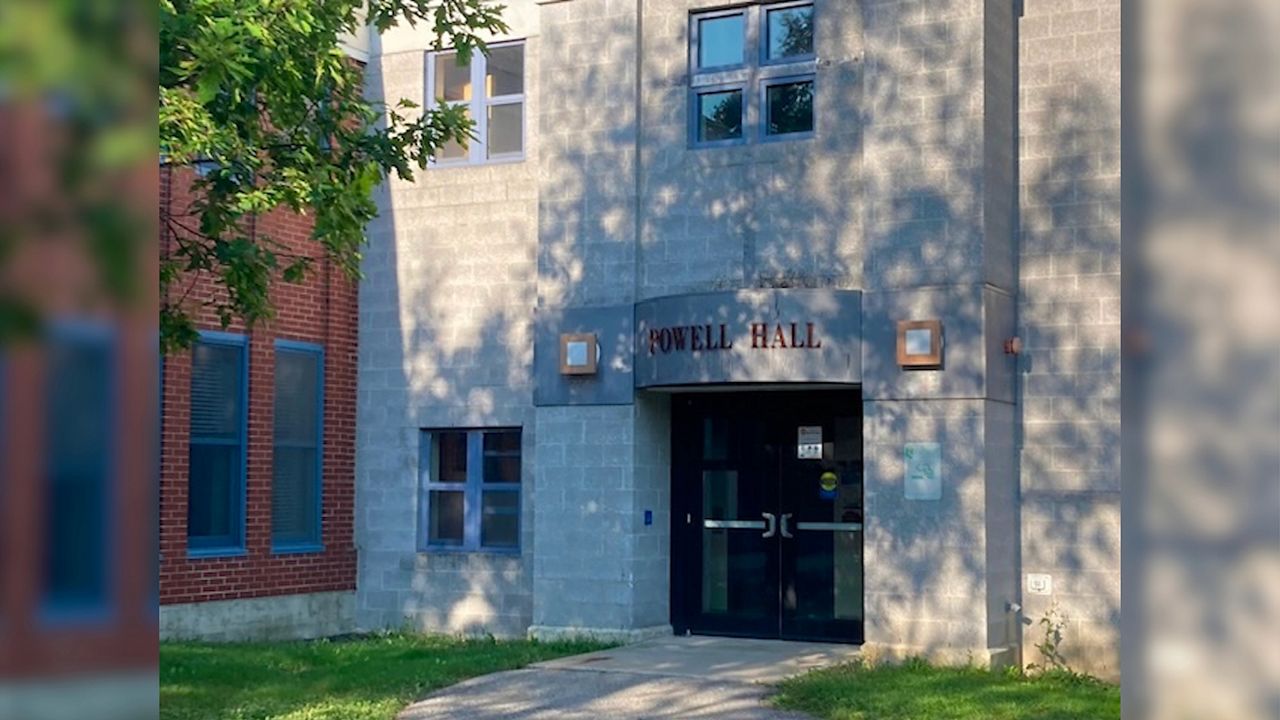ORONO — University of Maine students gathered at the institution’s Orono campus Friday asking the school’s administration to communicate more clearly with students about their immigration and customs enforcement policy.
An update on administration executive orders posted on the UMaine website in January reads, in part, “per a longstanding university practice, non-university law enforcement officials, including those of immigration agencies, generally are not allowed to access restricted spaces without a warrant or being accompanied by authorized university personnel.”
Students say they want to know what they should do if they are approached by ICE or if ICE raids occur on campus.
Federal immigration officials say the Trump Administration deported more than 65,000 people in the president’s first 100 days. A University of Minnesota graduate student and a Tufts University student were both detained by U.S. immigration authorities in March.
Friday’s protest was organized by the UMaine chapter of the Jewish Voice for Peace and UMaine’s Students for Democratic Society.
Students say they have already spoken with some administrators and campus police about ICE behind closed doors but want university leaders to speak out publicly.
“University of Maine System Administrators need to talk to our students,” said Willow Cunningham, Vice President of the UMaine chapter of the Jewish Voice for Peace. “[UMS] need to make sure the entire campus is prepared to handle ICE coming onto our campus, they need to make sure that the current moment is acknowledged and that student fears are addressed.”
A UMS representative did not comment on the protest itself but told Spectrum News they are "committed to fully complying with all relevant laws and regulations, including those that protect student privacy, free speech and assembly, and due process."
UMS added that campus security and police do not have partnership agreements related to immigration enforcement.
“While all UMS campus security and campus police departments maintain professional relationships with various other law enforcement agencies,” a UMS representative said. “None have active partnership agreements related to immigration enforcement.”





